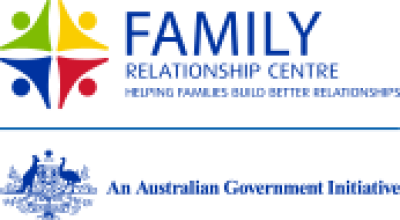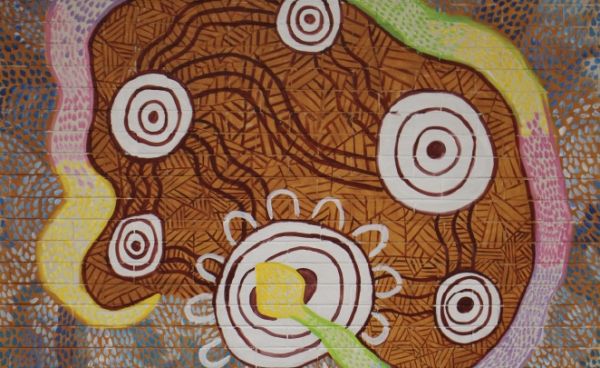The Family Relationship Centre helps families communicate and negotiate during difficult times.
Welcome to CatholicCare's comprehensive Mediation services, where we prioritise compassionate resolutions for families undergoing challenging times.
Our range of specialised Mediation services provide a collaborative space for respectful discussions.
- Child-Inclusive Mediation emphasises the importance of children's perspectives in decision-making, fostering holistic family solutions.
- For those seeking legal guidance, our Legally-Assisted Mediation provides expert support.
- Additionally, our Rural Family Dispute Resolution caters to the unique needs of rural communities, ensuring accessible and tailored mediation services.
Family Dispute Resolution Services Fees NoticeWhat to Expect From Family Dispute Resolution
Our Mediation services

Parenting Mediation
Helping families in Toowoomba and South West Qld navigate separation. Our mediation services support respectful negotiations relating to parenting agreements and other arrangements.

Property Mediation
We support the negotiation process, assisting separated parents in Toowoomba and South West Qld to develop property settlement agreements without litigation or other costly, and often stressful, legal proceedings.

Child-Inclusive Mediation
Child-Inclusive Mediation is a form of mediation that can support children to have a voice in the process and can assist separated parents to hear the experiences and perspectives of their children.

Legally-Assisted Mediation
A Property or Parenting Mediation session to assist you and your spouse in reaching a mutually acceptable agreement with the help of a qualified lawyer.
The Mediation Process

Supporting you to overcome challenges and strengthen relationships.
Confidential and compassionate support for navigating parenting, property, and financial matters post-separation. Get started today.
FAQs
Find answers to some common questions regarding our mediation and family dispute resolution services. If your question isn't addressed here, please reach out to us directly. We're here to help.
What is mediation?
Mediation is a process where an independent, neutral third party (mediator) can assist people to come to an agreement, rather than having an order imposed on them.
In Australia, accredited mediators have undertaken specialist qualifications, enabling them to assist people to resolve their disputes.
In family law, mediators are required to be registered with the Commonwealth Attorney-General’s Department and have received further additional training and assessment to assist parties to come to agreements involving parenting and financial matters, including property division. They call these specially trained mediators Family Dispute Resolution Practitioners (or FDRPs for short).
Mediation is generally a voluntary process (although a court can require parties to participate in mediation).
In family law, mediation is usually required prior to starting court proceedings, and in the majority of cases it results in agreements being reached without the necessity of court proceedings. This typically results in faster issue resolution and with minimal cost (or subsidised for people on low incomes at CatholicCare).
Even when court proceedings are in progress, mediation can assist parties to resolve their dispute prior to a final court hearing, which means that the parties can save the stress, uncertainty and costs associated with the court process.
What is the difference between mediation and arbitration?
The main difference between arbitration and mediation is who makes the final decision.
With arbitration the parties present their arguments and evidence before the arbitrator with the intention to have the arbitrator make the decision. In many ways, it is similar to a court process.
Mediation involves a mediator guiding the process in a collaborative manner. With the mediator's aid, parties aim to resolve disputes, seeking a mutually agreeable solution through compromise. The goal is to reach a resolution that both parties find acceptable.
How long does family mediation take?
The length of the process can vary on a number of factors. Delays can be experienced due to factors unique to each case (such as counselling or independent legal advice being obtained), party availability and engagement, or if there is a high demand for our services.
To optimise outcomes, we recommend each party in a mediation attends an informative session outlining the process and relevant legal framework. This helps effectively prepare them for the joint mediation sessions.
Each party then participates in an individual intake session one-on-one with a Family Dispute Resolution Practitioner. This allows the Family Dispute Resolution Practitioner to get to know you and the intricacies of your case as well as assessing how best to facilitate the joint mediation session so that the parties feel comfortable while ensuring the case is suitable to proceed through the mediation process.
Once the pre-mediation steps have been completed, a joint mediation session is usually scheduled for a time when both parties are available.
Sometimes, more than one joint mediation session is held, depending on individual requirements (for example, one for parenting and then another for property) however only one three hour joint session is scheduled on any one day.
Do I have to go to mediation?
Mediation is a voluntary process, however, it is a necessary step under Australian family law for separated parents to attempt Family Dispute Resolution before applying to a family law court for parenting orders.
There are exemptions to this requirement, including:
- when persons are formalising an agreement already reached through ‘consent orders’;
- where family violence or child abuse is a factor;
- when a person is responding to an application to court;
- where there are urgent issues to be resolved;
- a person is unable to participate effectively (for example, due to incapacity or geographical location), or
- a person has contravened and shown a serious disregard for a court order made in the last 12 months.
Can you go to court without mediation?
Certain circumstances allow for skipping mediation prior to court application.
These include:
- when persons are formalising an agreement already reached through ‘consent orders’;
- where family violence or child abuse is a factor;
- when a person is responding to an application to court;
- where there are urgent issues to be resolved;
- a person is unable to participate effectively (for example, due to incapacity or geographical location), or
- a person has contravened and shown a serious disregard for a court order made in the last 12 months.
What is a section 60I certificate?
A s60I certificate is issued by an accredited Family Dispute Resolution Practitioner outlining the parties’ attempt to resolve their disputes ahead of Court.
This certificate is required by the courts and is compulsory, (unless an exemption applies). The certificate needs to be filed along with the commencing documentation in the Federal Circuit and Family Court of Australia if the parties haven’t been able to resolve their dispute during the mediation process.
The Family Law Act 1975 requires that separating couples who wish to engage in legal proceedings for parenting orders must make a genuine attempt to resolve the issues in dispute together. This attempt is usually carried out in a family dispute resolution process. Only a registered family dispute resolution practitioner can issue a s60i certificate.
A section 60I certificate will be issued once the process has been completed or has been determined to be inappropriate to proceed. A certificate may state one of the following outcomes:
- The other party to the mediation failed to attend; or
- The family dispute resolution practitioner considered the matter and determined that mediation process was not appropriate to continue; or
- Both parties commenced meditation, but family dispute resolution practitioner considered the mediation not appropriate to continue; or
- Both parties attended the mediation but one or more of them did not make a genuine attempt; or
- Both parties attended the mediation and made a genuine effort to resolve the issues.
If the family dispute resolution process is successful, a parenting plan may be created by the Family Dispute Resolution Practitioner. The parties have the option to turn the parenting plan into Consent Orders.
Contact us
We’re here for you and your family. For an obligation-free conversation about how we might support your family through this difficult time with our mediation services, call 1300 348 248 or fill out the form below.







